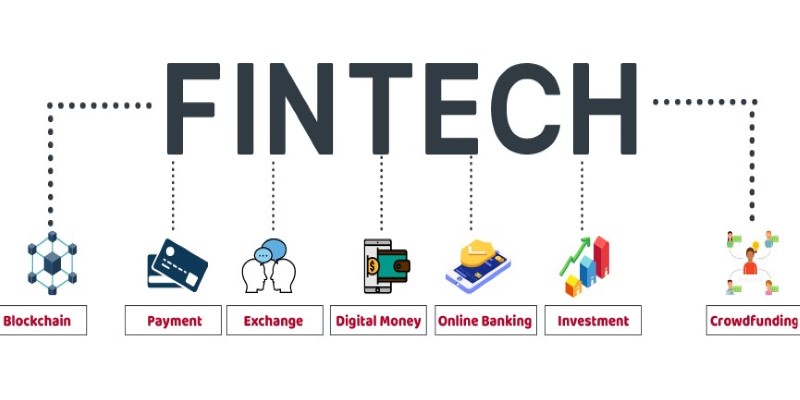Revolut's New Banking Era: What the License Means for Digital Banking
Oct 24, 2024 By Pamela Andrew
Revolut, a UK-based fintech firm founded in 2015, began as a money-transfer service but rapidly evolved into a leading digital banking platform. In 2018, it took a significant step by acquiring a European banking license from the European Central Bank via Lithuania. This milestone transformed Revolut from a simple financial app into a fully licensed bank, capable of offering a broad spectrum of banking services across Europe.
With over 45 million personal customers and half a million business clients globally, the banking license positions Revolut to compete directly with traditional financial institutions. It now offers services like full current accounts, loans, and deposit protection under the European deposit guarantee scheme. This move also enhances its ability to build its financial super app, combining banking, stock investment, and budgeting tools into a single platform.
Expanding Across Europe
Acquiring the European banking license was a significant milestone for Revolut, enabling its growth strategy to flourish across Europe. With this license, Revolut launched full banking services in 2020 in key markets like Poland, Lithuania, France, Italy, and Portugal. This expansion allowed the fintech firm to offer essential financial products typically associated with traditional banks, including deposit protection and business loans.
In Portugal, Revolut faced a mixed reception;. At the same time, many welcomed its entry as a necessary challenge to established banks, and local institutions raised concerns about potential unfair competition, questioning whether Revolut adhered to the same regulatory standards.
Despite these criticisms, the company pressed on with its expansion, utilizing the license to introduce various services, such as mortgages and branded loans, throughout the European Economic Area (EEA). This move not only enhanced Revolut's product offerings but also positioned it as a formidable player in the European banking landscape.
The Significance of the Banking License
Revoluts European banking license is more than just a regulatory stamp of approval. It represents a pivotal moment in the company's development, providing it with the legal framework to offer a wider range of financial products. With this license, Revolut can now directly hold deposits and offer lending products without relying on third-party banks.

One of the most significant benefits of this license is the European deposit guarantee scheme, which safeguards customers' deposits up to 100,000. This protection is crucial for building trust with users, particularly in countries where Revolut competes with long-established financial institutions. It also empowers the company to tap into markets that previously would have been out of reach.
Moreover, the license enables Revolut to become a more formidable competitor to traditional banks, many of which are burdened with legacy systems and slower innovation cycles. With its app-first approach, Revolut continues to offer users more convenience, lower fees, and more modern financial tools. This focus on innovation, coupled with the banking license, positions Revolut to gain further market share across Europe.
Challenges and Criticism
Despite the advantages the banking license provides, Revolut has faced some criticism. One notable issue arose in Portugal, where local banks accused Revolut of being held to different standards than traditional banks. This sparked a debate on whether new fintech companies like Revolut should be subject to the same stringent regulations as established banks.
Moreover, Revoluts rapid expansion across multiple markets has not been without technical difficulties. The company has faced scrutiny over its financial controls and auditing processes, particularly in the UK. These issues delayed its UK banking license, which it only obtained in 2024 after a three-year wait. Revolut's Chief Financial Officer at the time acknowledged that the company's internal systems initially struggled to keep up with its growth, prompting significant updates to its IT infrastructure.
However, the company has worked hard to resolve these issues, and the acquisition of the European banking license allowed Revolut to continue expanding and solidifying its presence across the continent. Despite facing regulatory challenges and criticism, the company remains committed to maintaining compliance with European banking standards and delivering high-quality services to its customers.
Revolute's Global Ambitions
Revoluts ambitions are expanding beyond Europe as it actively seeks to strengthen its global presence. In 2024, the fintech company applied for a banking license in Colombia, aiming to compete in the Latin American market alongside established players like Nubank. This strategic move follows its earlier success in acquiring a banking license in Mexico, further solidifying its footprint in the region.

After a lengthy regulatory review, Revolut has finally obtained a banking license in its UK home market. Although this license comes with certain restrictions, it sets the stage for the company to launch essential financial products such as current accounts, mortgages, and consumer loans. This diversification of offerings will help strengthen Revolut's position within the competitive UK banking landscape.
Additionally, Revolut is gearing up for an Initial Public Offering (IPO), which is anticipated to significantly enhance its capital base and facilitate further expansion into previously untapped markets. As the company continues to grow its customer base and refine its financial systems, the upcoming IPO is expected to be a pivotal moment in Revolut's journey, allowing it to unlock new opportunities and solidify its status as a leading player in the global fintech arena.
Conclusion
Revolut's acquisition of a European banking license was a major turning point in the company's history. It allowed Revolut to expand its services across Europe and compete directly with traditional banks. The license not only boosts Revolut's credibility as a serious financial institution but also provides its customers with added security and more robust financial products.
Despite the challenges Revolut has faced, including regulatory hurdles and criticism from traditional banking institutions, the fintech firm continues to grow and innovate. Its global ambitions, coupled with a strong foundation in Europe, indicate that Revolut is well-positioned to become one of the leading digital banks in the world.
-
 Business Sep 02, 2024
Business Sep 02, 202410 Lucrative Side Hustle Ideas You Can Start in 2024
Explore diverse side hustle ideas that boost your income, from tutoring to photography, while allowing you to pursue your passions and develop new skills.
-
 Business Sep 29, 2024
Business Sep 29, 2024Strategies for Online Business Growth
Uncover key strategies to enhance your online business growth and effective digital marketing techniques.
-
 FinTech Oct 13, 2024
FinTech Oct 13, 2024Navigating Global Markets: Safely Expanding with International Credit Reports
Leverage international credit reports to enhance global expansion efforts by mitigating risks, making informed decisions, and maintaining regulatory compliance.
-
 Business Sep 02, 2024
Business Sep 02, 2024Top 10 Free Job Posting Sites to Use in 2024 for Hiring Success
Online job placement postings allow companies to advertise vacant positions. These platforms also let job seekers identify opportunities.
